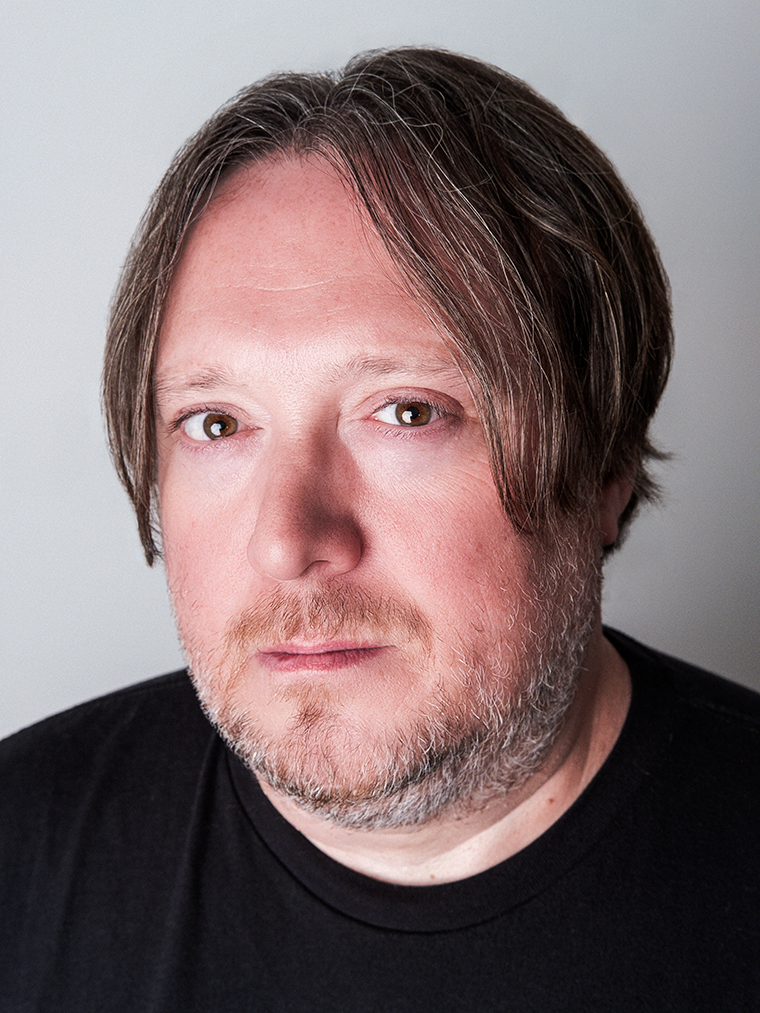Filed under:
I don’t think there are many places where you can get the kind of education I got at Sarah Lawrence.
 Dave Porter has been a musician since he was five years old. Starting with the piano and expanding to include electronic music as a teen, Porter studied classical and electronic music at Sarah Lawrence. His professional career began as an assistant in Philip Glass’ recording studio in New York City. Porter relocated to Los Angeles and went on to compose the score for the groundbreaking television series “Breaking Bad”, its prequel “Better Call Saul”, and the feature film “El Camino: A Breaking Bad Movie.” He also composed the score for the Marvel show “Echo”, “Murf The Surf”, “Hightown”, “Preacher”, and “The Blacklist”, and the film “The Disaster Artist.” A generous supporter of the College, Porter returns to campus regularly to engage with students, most recently to deliver the keynote address at a Connecting Passions, Creating Futures event hosted by Career Services.
Dave Porter has been a musician since he was five years old. Starting with the piano and expanding to include electronic music as a teen, Porter studied classical and electronic music at Sarah Lawrence. His professional career began as an assistant in Philip Glass’ recording studio in New York City. Porter relocated to Los Angeles and went on to compose the score for the groundbreaking television series “Breaking Bad”, its prequel “Better Call Saul”, and the feature film “El Camino: A Breaking Bad Movie.” He also composed the score for the Marvel show “Echo”, “Murf The Surf”, “Hightown”, “Preacher”, and “The Blacklist”, and the film “The Disaster Artist.” A generous supporter of the College, Porter returns to campus regularly to engage with students, most recently to deliver the keynote address at a Connecting Passions, Creating Futures event hosted by Career Services.
How did your time at Sarah Lawrence shape your professional outlook?
“One of the things I learned at Sarah Lawrence that has helped me the most is collaboration. Sharing my work creatively — especially my music, not only with other students and faculty in the music program but also across disciplines like dance, theatre, and art — taught me how music could enhance other creative projects. That collaborative spirit is the essence of what I do in my career today.”
You took a class with John Yannelli (Director, Program in Music and Music Technology; William Schuman Scholar in Music) as a student here. What are your memories of that?
Yes, John was my don, and we’re still in touch today. From the moment I walked into the studios, I was encouraged by him and the rest of the faculty to not only continue learning about the foundations of music and classical music — what I had studied as a child — but how to use that knowledge and the skills that I had learned to express myself, which is something I hadn't done, and to explore things that interested me personally. It was a huge boon to me and an important moment of growth for me creatively.
For John, I did a senior thesis project that culminated in a concert performance in Reisinger. It encompassed all of the different mediums that I had explored during my time at Sarah Lawrence — from writing classical piano pieces to a score for a film that was created by another student, to a totally improvised piece that I did with a collective of other musicians, to pieces that involved music and instruments that I had studied on my semester abroad in Japan. Just a total summation of what I had done and that will always stand out to me.
Why is supporting a Sarah Lawrence education important to you?
I don’t think there are many places where you can get the kind of education I got at Sarah Lawrence. The experiences I had there shaped my life and career, and I want to make sure future generations can have that same opportunity. It helped me carve a path for my career that involved things I was deeply passionate about — and I could still make a living doing them. That’s something so many of us alumni feel lucky to have achieved.
And what’s inspired you to give back to the College?
I want to make sure that there's an opportunity for those for whom this is the right path, to not only be able to find that path, but have it be accessible to them. There's giving money, and that's an important thing, but even more important is keeping a connection between Sarah Lawrence and people who are actively working in the business. One thing that was great about Sarah Lawrence's connection to New York City is that the faculty have active careers of their own. It’s important for both faculty and students to have a safe academic bubble on campus to explore, but having those connections to the working world is crucial as well.
My whole career is based on a network of people that I've worked with. It's very rare that I get a call about collaborating out of the blue from someone I don't know. It's someone that I've worked with before, or it's someone who was recommended to me by someone I've worked with before. I call it “growing your tree.”
What advice do you have for fellow alums on how they can also make an impact?
Take the time to get back to campus. I love going back because it's great to share that knowledge and your insight with the students who are there and they're eager to hear it. But it's also great for alums. It's an important place where a lot of my growth began. I find it just as important for me as it is for the young people that I get to speak with.